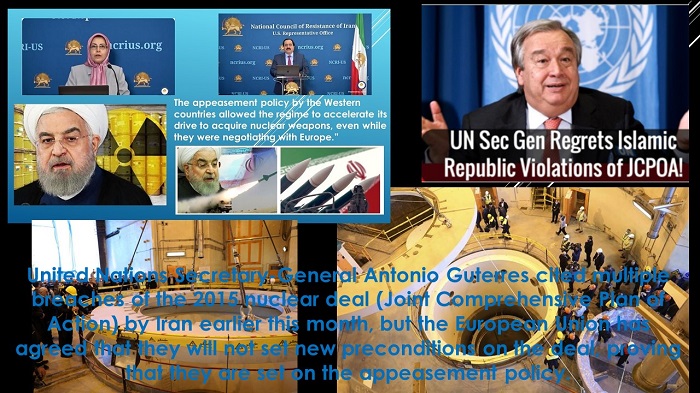
The National Council of Resistance of Iran (NCRI), and the People’s Mujahedin of Iran (PMOI / MEK Iran), reported that the Iranian regime and international powers held their fifth round of informal discussions in Vienna, with the goal of reviving the 2015 nuclear deal, also known as the Joint Comprehensive Plan of Action or JCPOA. As part of its nuclear extortion strategy, the government began systematically breaking the terms of the deal in 2019. It officially stopped complying with the accord in January 2020, and since then, it has progressed portions of its nuclear program beyond where it was when the JCPOA was negotiated.
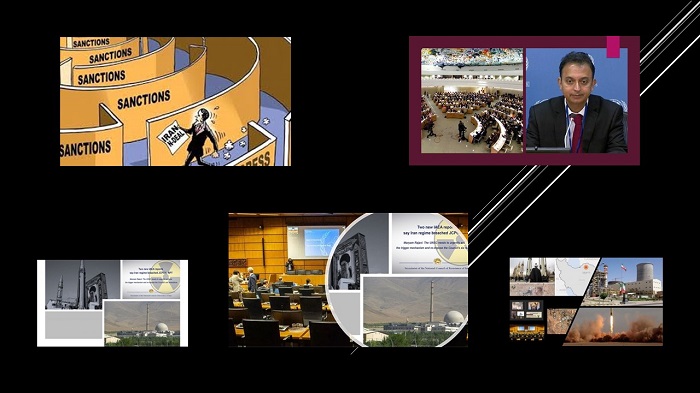
The newest report from the International Atomic Energy Agency presented important details of that progress to participants in the deal on Monday. The contents of that report should have influenced European negotiators’ attitude to the talks in Vienna. Regrettably, European Union’s coordinating ambassador told media this week that he expected the deal to be finalised at the next round of talks.
The report published on Monday highlighted Tehran’s continued refusal of transparency in the midst of the Vienna talks. Rafael Grossi, the Director General of the International Atomic Energy Agency, made the same point.
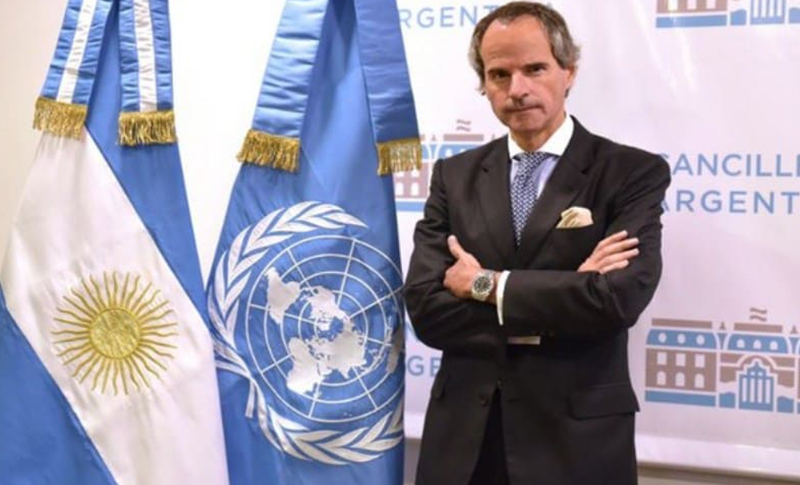
Grossi’s remark on the result of future negotiations is obviously contingent on the EU’s attitude during next week’s meetings in Vienna, as well as any subsequent talks.
Until now, European negotiators have been happy to ignore the regime’s breaches and deception in order to pursue a restoration to the status quo and put pressure on the United States to do the same. However, if they continue on this path, the regime will be emboldened to engage in more lies, violations, and ultimatums in their dealings with the international community.
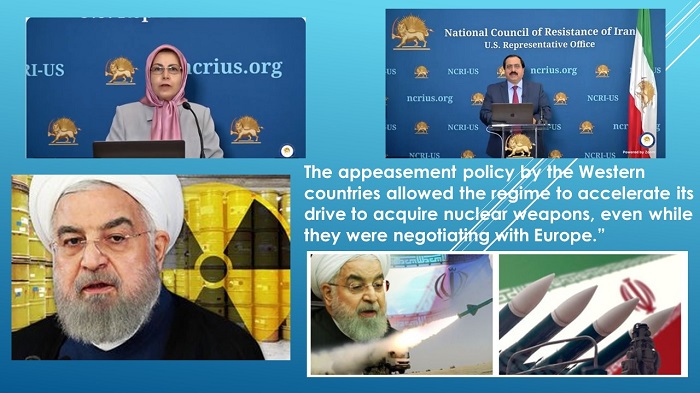
Last month, the dictatorship boasted of starting 60 percent uranium enrichment, cutting the time it would take to attain weapons-grade enrichment of roughly 90 percent in half. According to the IAEA assessment, Iran has produced at least 2.4 kg of the material, which is more than 1% of the total quantity of uranium that the regime is allowed to stockpile under the conditions of the JCPOA.
However, in the more than two years since the regime has broken those terms, the government’s total uranium stock has grown to roughly 16 times the limit. It also came to include uranium metal reserves earlier this year, a substance with little to no use other than as part of the core of a nuclear weapon.
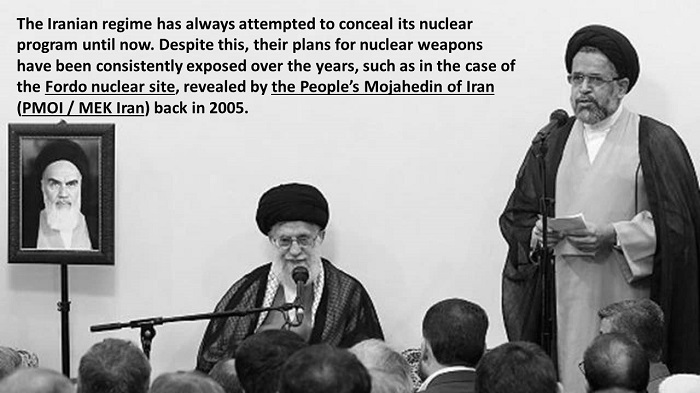
Iran was allowed to disrupt the investigation of the inspectors. Meanwhile, authorities demolished structures and scraped topsoil from the sites in an effort to clean them and conceal signs of operations that might expose them to international scrutiny. Although these efforts failed to eliminate all traces of nuclear material, the IAEA’s certification of their presence did not result in enforceable penalties from the European JCPOA members.
The EU’s willingness to return to the deeply weak JCPOA during the Vienna talks, so soon after the IAEA confirmed that Tehran’s infractions are far more widespread than previously thought, demonstrates the irresponsible EU’s appeasement approach.
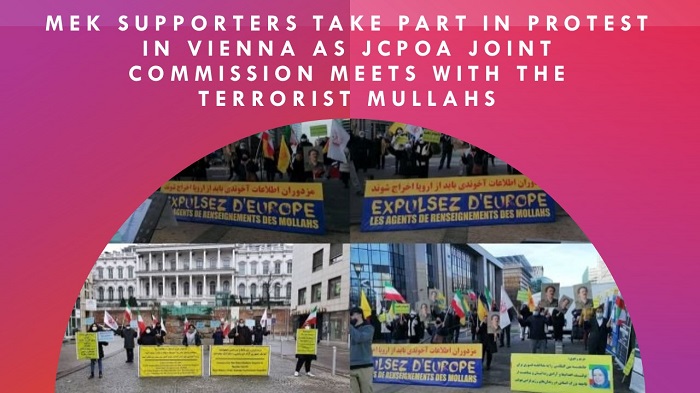
MEK Iran (follow us on Twitter and Facebook)
and People’s Mojahedin Organization of Iran – MEK IRAN – YouTube







